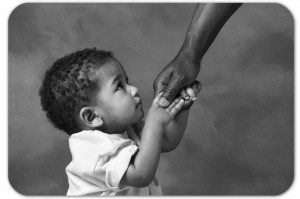 In the Name of the Compassionate and Infinitely Merciful Precious Beloved
In the Name of the Compassionate and Infinitely Merciful Precious Beloved
This year’s Father’s Day is extra special for me: for one thing, I have the weekend off, and thus I can spend the day with my family and not have to worry about rounding and taking hospital call. More importantly, however, is that I will spend it with our newest addition: our son, Zacharia. I am so very grateful for his arrival to our family.
Yet, as I reflect over fatherhood – especially as a Muslim – I realize that we Dads get a raw deal. In Islam, there is a huge emphasis placed on the importance of a mother. In a famous Prophetic Tradition, a man asked the Prophet Muhammad (peace be upon him) to which of his two parents he owes the most allegiance. The Prophet replied, “Your mother” three times.
It is only by the grace of God that the man persisted in his questioning of the Prophet: after asking for a fourth time, the Prophet said, “Your father.” What if that man left after the Prophet said “Your mother” three times? Dad wouldn’t have even gotten an “honorable mention.”
In another tradition, the Prophet Muhammad told a man to take care of his ill mother because “you will find paradise underneath her feet.” What’s under my feet as a Dad? My children’s gum that they left on the ground!
Once, there was a man who was dying, and he could not utter the testimony of faith which Muslims are encouraged to say before death. The Prophet asked to see the man’s mother (notice…not his father). Apparently, during this man’s life, he was persistently disobedient to his mother, and she had not forgiven him for it. It was only after she forgave her son, with the Prophet as a witness, that the man was able to utter the testimony of faith. This seems to suggest that our very salvation is at stake if we are bad to our mothers. But, our fathers…
Another time, a man came to the Prophet Muhammad and complained that his mother was ill-tempered. The Prophet replied, “She was not ill tempered when she kept you in her womb for nine months.” The man insisted: “Sir, I am telling you the truth that she is ill-tempered.” The Prophet said: “She was not ill-tempered when she used to keep awake the whole night for your sake and feed you.”
The man then said: “I have repaid my mother for all these favors.” The Prophet then asked, “How have you repaid her?” The man replied: “I have helped her perform [the pilgrimage to Mecca] by putting her on my shoulders.” The Prophet then said: “Can you also repay the painful pangs which your mother bore at the time of your birth?”
Oh, picky, picky! Yes, my wife did carry our son for nine months. Yes, she did have to endure a lot of pain during delivery. Yes, she is up all night feeding him, changing him, and soothing him while I am fast asleep. Please don’t get me wrong: I try to help, but I am really of no use to my boy at this stage in his life. Moreover, the one time I did try to change him, it ended up in an unmitigated disaster with poop and pee everywhere.
But still, even though the mother, as the Quran (31:14) says, “bore [the child] by bearing strain upon strain, and his utter dependence on her lasted two years,” why can’t I get paradise underneath my feet? I mean, I do go to work every day. Why are we Dads shafted? Just because my wife carried our children in her womb, stayed up many nights taking care of them, worried sick about their every living moment, worked hard for them every single day of her life, does that makes her “more special” than me? Islam says, unequivocally, “YES!”
And it is absolutely right and proper to do so.
I am so very blessed to be a father: the joy my children bring to me is truly indescribable. Despite the “inferior” status of being a Dad, I would do it all over again in a heartbeat. Having said all of that, however, seeing what my wife had to go through during the pregnancy and delivery of all our children; seeing how much anguish she has when any of our children cries or is upset; seeing how much pain she suffered when our daughter died; it is only right and proper that Paradise lies underneath her feet.
All I ask is, honey, please put in a good word for me to the Precious Beloved.
Hesham Hassaballa is a columnist at Patheos and a Chicago-based doctor and writer. His latest book is Noble Brother: The Story of the Prophet Muhammad in Poetry (Faithful Word Press). You can read more of his writings at www.drhassaballa.com. This article orginally appeared in Chicago Now.












